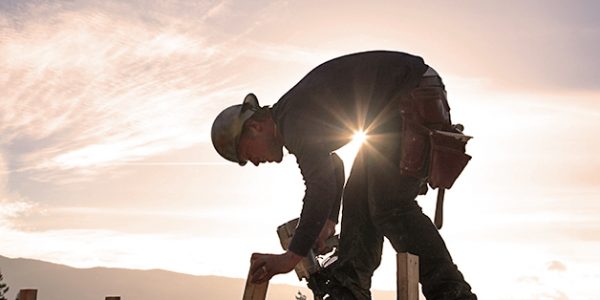Outdoor workers need better sun protection on the job
Seek shade and avoid the sun during peak hours. Those are two of the common suggestions for skin cancer prevention. But what if you can’t follow that advice? Outdoor workers—in construction, landscaping and road maintenance—can’t pick and choose when they’ll be outside. These workers are in a high-risk category for skin cancer, and researchers are starting to focus on prevention strategies for them.
Concerning numbers
Vancouver Coastal Health Research Institute Scientist Dr. Sunil Kalia, and Dr. Cheryl Peters along with other researchers have just completed a survey of outdoor workers and their skin protection behaviours. The study shows there’s a long way to go to ensure workers get adequate protection from the sun’s damaging rays. “We found that less than 30% of workers used sunscreen and only 8% seek shade regularly,” says Dr. Kalia. “This is a group that hasn’t received as much attention when it comes to skin cancer. I hope we can change that.”
A solution: workplace policies
Dr. Kalia says enforceable workplace skin protection policies are the best way to ensure better skin cancer prevention. Currently, there is a lack of such policies.
“Hard hats don’t give the neck or face much protection. And long-sleeve shirts should ideally be made with a high UV protectant fabric.”
Dr. Kalia says unlike a workplace accident, skin cancer is not an immediate threat, so it doesn’t get the attention it should.
“It’s a struggle to make the case for mandating skin protection on the job site because the symptoms of skin cancer are so delayed–you don’t see it develop until 15-20 years later.”
The stakes are high, especially in BC, which has the highest rates of skin cancer in Canada. For melanoma alone, there are about 965 new cases in BC each year, and one in five individuals will be affected during their lifetime by skin cancer. Dr. Kalia compares the goal of skin cancer sun safety at work with the lung cancer anti-smoking campaign. “People kept smoking even though they knew it was bad for them. When smoking legislation came in, the rates dropped. We need to have workplace policy for skin cancer too.”

